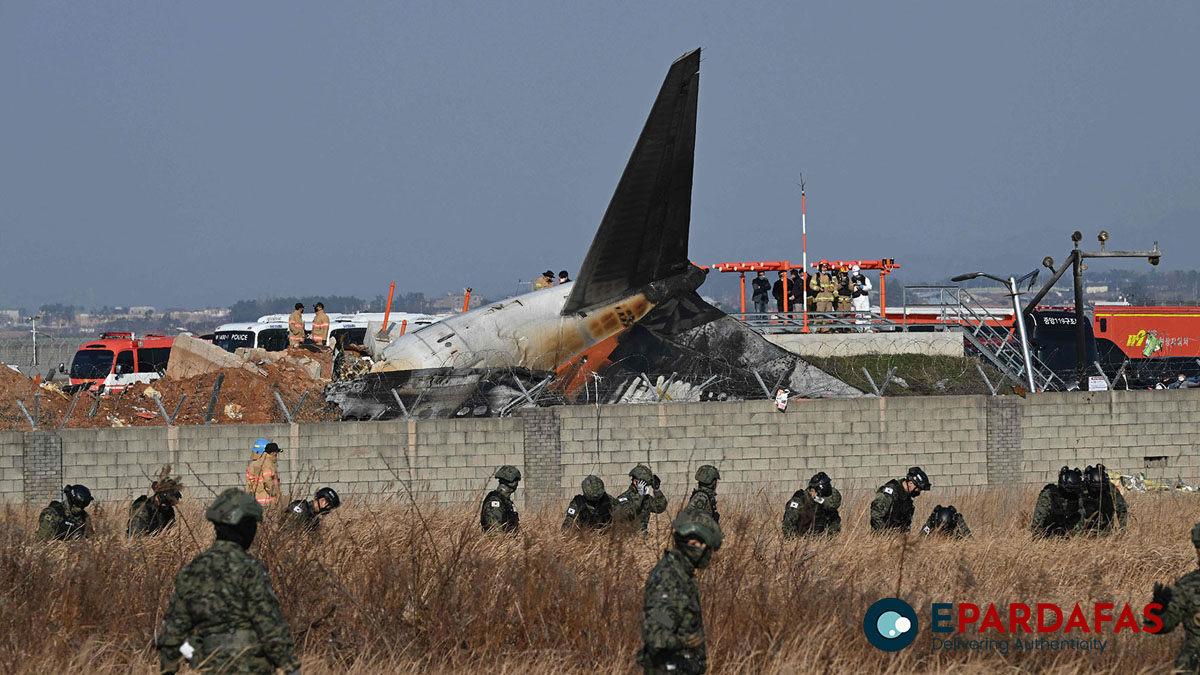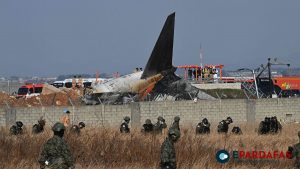
2024: A Year of Tragedy for Global Aviation Sector
The year 2024 will be remembered as a devastating chapter for the global aviation sector, marked by a series of catastrophic air crashes that claimed hundreds of lives. With major accidents occurring internationally and in Nepal, the year exposed persistent safety concerns in aviation.
Global Air Tragedies
The final days of 2024 were particularly grim. On December 29, a plane carrying 181 people crashed in Muan, South Korea, leaving 179 dead, with only two survivors rescued from the wreckage. Just days earlier, on December 25, an Azerbaijan Airlines Embraer ERJ 190AR crashed near Aktau Airport in Kazakhstan, killing 38 people.
The second half of the year witnessed 217 fatalities in two major crashes alone, while notable global figures, including Iranian President Ebrahim Raisi and Malawi’s Vice President Saulos Chilima, lost their lives in separate aviation incidents in May. President Raisi perished in a helicopter crash, while Vice President Chilima died in a military plane crash.
Brazil also faced tragedy, with 10 members of a prominent family killed in a private plane crash in Gramado on December 22. Days earlier, an Air Canada flight caught fire while landing, and a small plane crash in Papua New Guinea killed five on board.
South America was hit hard with two fatal incidents in Argentina and Brazil. On August 9, a Sao Paulo plane crash killed all 62 people aboard, marking one of the deadliest single events of the year.
Impact on Nepal
Nepal experienced its share of aviation sorrow in 2024. On July 24, a Sourya Airlines plane crashed, killing 18 people. On August 7, five individuals lost their lives in an Air Dynasty helicopter crash in Shivapuri.
While these incidents shocked the nation, Nepal’s aviation sector showed slight improvement compared to past years. The Yeti Airlines ATR-72 crash in 2023, which killed all 72 passengers, remains the country’s deadliest domestic air disaster.
Concerns Over Safety and Rising Passenger Numbers
The frequent air accidents of 2024 have raised global concerns about safety protocols and technical vulnerabilities in aviation. Aviation experts stress the urgent need to address safety issues, especially as the number of air passengers worldwide continues to rise.
Former Civil Aviation Authority of Nepal (CAAN) Director General Sanjeev Gautam noted that the surge in December crashes globally had cast a shadow over the entire year. “Globally, 2024 was a tragic year for aviation,” he said, emphasizing the need to learn from these incidents to strengthen air safety measures.
Growth in Air Travel Despite Challenges
Despite the tragedies, air travel continued to grow. According to CAAN data, domestic air passengers in Nepal rose by 13% in 2024 compared to the previous year, reaching 8.76 million. International passengers also increased by 7.9%, totaling 4.45 million by November 2024. Globally, air passenger numbers neared five billion, with annual growth of 10%.
The International Civil Aviation Organization (ICAO) has set an ambitious goal to eliminate human-related aviation accidents by 2030. However, the series of crashes in 2024 has highlighted the challenges of achieving this target.
Experts agree that 2024 was a wake-up call for the aviation industry. While Nepal has made strides in safety, global incidents underline the need for vigilance. Capt. RK Sharma of Buddha Air emphasized, “The year 2024 should be seen as a reminder of the importance of aviation safety worldwide.”
As the aviation sector looks ahead to 2025, stakeholders are urged to prioritize safety measures, enhance technical standards, and ensure robust management to prevent further tragedies. RSS













Comments